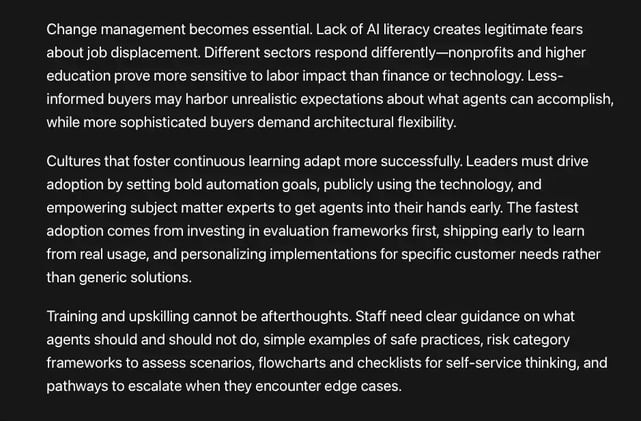- Pascal's Chatbot Q&As
- Archive
- Page 11
Archive
The report positions AI governance as a long-term constitutional and societal project, not a short-term competitiveness agenda.
The Irish Committee’s approach offers a strong template for democratic AI governance, particularly for jurisdictions that share EU legal foundations or rights-based constitutional traditions.

The biblical text is a tapestry woven from the threads of Ancient Near Eastern and Hellenistic literature. In the ancient world, authority was derived from antiquity.
To write a law code that mirrored Hammurabi, or a proverb collection that echoed Amenemope, was to claim a place within the legitimate, time-honored tradition of civilized wisdom.

The companies making the most consistent money from AI are not the labs building models, but the firms supplying human expertise, labor, and training data to them.
Mercor, Surge AI, and Handshake have emerged as some of the fastest-growing and most profitable players in the AI ecosystem. Their customers include OpenAI, Anthropic, Google, and Meta.

Under certain conditions, U.S. courts—and by extension Google—will tolerate site-wide de-indexing without the endless treadmill of URL-by-URL takedowns.
Google’s U.S. delisting of Sci-Hub domains is not a revolution—but it is a wake-up call. Search engines will comply when confronted with durable court authority.

Amazon's "Ask This Book", a structural shift in how reading, interpretation, and even authorship itself are mediated by platforms.
According to the reporting, the feature is always on and cannot be opted out of by authors or publishers, a design choice that has already raised concerns across the publishing ecosystem.

Judge Stein’s ruling restores clarity at a moment when clarity is badly needed. Robots.txt is a sign. The DMCA protects locks.
If society wants stronger protection, it must build it deliberately—through legislation, infrastructure, and enforceable standards—not by pretending that courtesy equals control.

Listing the negative consequences—for data sovereignty, AI sovereignty, citizens, and business—if Europe continues to treat “EU region” hosting by US hyperscalers as a sovereignty solution...
...rather than a sovereignty story. Even without malicious intent, extraterritorial powers create a structural lever.

Will AI be allowed to quietly rewrite the social contract of markets, replacing shared prices with individualized extraction engines.
Regulators still have a narrow window to act—not merely to fine or investigate, but to draw clear red lines about where algorithmic optimisation ends and social harm begins.

Technology alone cannot enable successful agentic AI adoption. Organizations face three categories of blockers: people who lack necessary skills or decision-making authority, processes burdened by...
...excessive bureaucracy or insufficient rapid iteration, and scope that tries to accomplish too much without focusing on minimum viable products.

The new Pentagon PFAC policy redefines access not as a long-standing journalistic norm but as a discretionary privilege subject to vague, subjective, and viewpoint-dependent criteria.
The complaint argues that this regime violates the First Amendment, the Fifth Amendment, and decades of binding D.C. Circuit precedent governing press access to government facilities.












